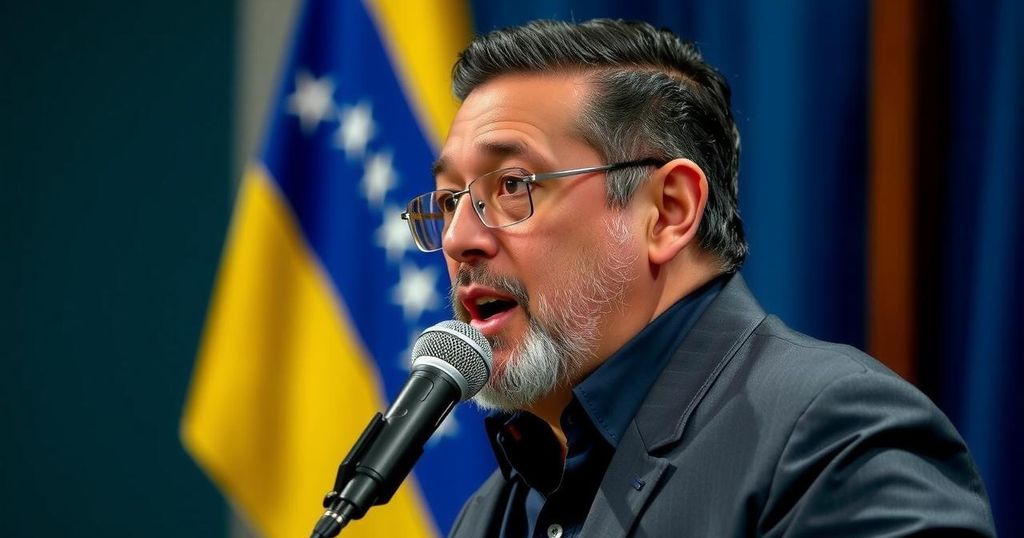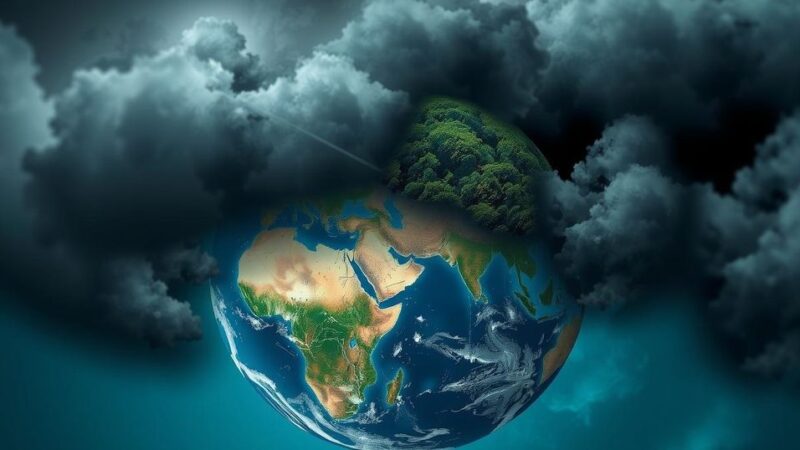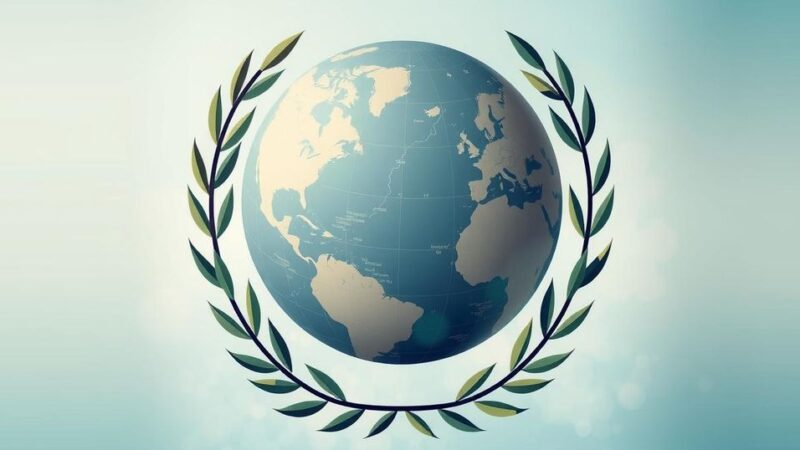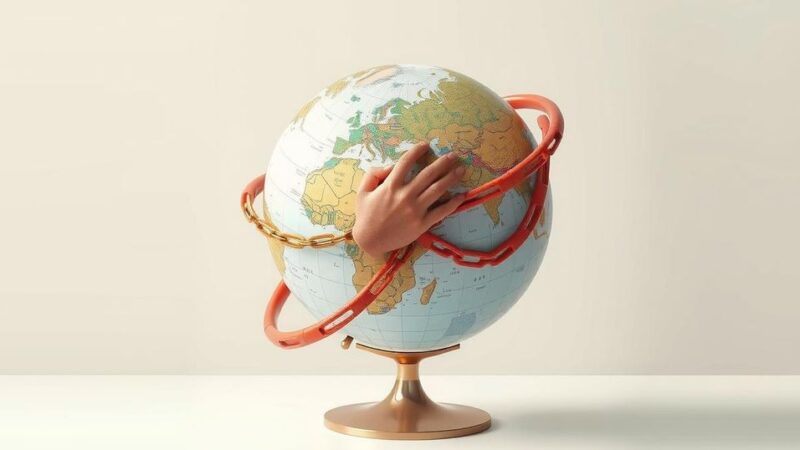Venezuela’s President Nicolas Maduro asserted that the country will not be silenced following Brazil’s veto of its BRICS application. The decision drew sharp criticism from Venezuela, which faces an economic crisis attributed to U.S. sanctions. Maduro emphasized his intent to maintain Venezuela’s presence in international discussions, even as relations with Brazil have soured post-election.
On October 26, 2024, President Nicolas Maduro of Venezuela made a resolute declaration that his country would not be silenced following Brazil’s veto of its application to join the BRICS coalition of emerging economies. Venezuela is currently grappling with a significant economic crisis, which the Maduro administration attributes to sanctions imposed by the United States. Historically, Venezuela has aimed to become a member of the BRICS group, which includes Brazil, Russia, India, China, and South Africa, among others. The reaction from Venezuela to Brazil’s veto was one of intensity, with officials labeling the decision as both “hostile” and “immoral.” Upon his return from the BRICS summit in Kazan, Russia, President Maduro asserted on state television, “No one will block or silence Venezuela, not today, not tomorrow, not ever,” although he notably refrained from specifically naming Brazil in his remarks. The relationship between President Maduro and Brazilian President Luiz Inacio Lula da Silva has traditionally been one of camaraderie; however, tensions have arisen recently due to the dispute surrounding Venezuela’s presidential election. Following the election on July 28, which the opposition claims they won, President Lula’s administration has been critical of Maduro’s refusal to disclose thorough election results as previously promised. Former Foreign Minister Celso Amorim, an advisor to President Lula, cited this as a “breach of confidence” by President Maduro. Amidst these developments, it is suggested by the Venezuelan opposition that the undisclosed results would reveal that Maduro had indeed been defeated by Edmundo Gonzalez Urrutia, who is currently residing in Spain following an arrest warrant made against him. Despite these challenges, President Maduro maintained that he engaged with representatives from nearly 30 different governments in Kazan, with all acknowledging his alleged “great electoral victory.” The BRICS group expanded in 2024 to include nations such as Ethiopia, Iran, Egypt, and the United Arab Emirates alongside its pre-existing members.
Venezuela’s bid to join the BRICS group occurs against the backdrop of a severe and ongoing economic crisis that the government attributes to external sanctions, specifically those from the United States. BRICS is an acronym for a coalition of emerging economies that currently includes Brazil, Russia, India, China, South Africa, and, as of 2024, several additional nations. Venezuela’s aspiration to join this coalition is part of its broader strategy to seek alliances and support amid economic isolation. The rejection of its application by Brazil marks a significant diplomatic setback and has been interpreted as a deterioration of relations between Venezuela and Brazil, particularly under President Lula, who has historically been one of Maduro’s allies.
In conclusion, President Nicolas Maduro’s declaration signifies Venezuela’s determination to assert its voice on the international stage despite facing significant obstacles, including Brazil’s veto of its BRICS application. The complexities of Venezuelan politics and its relations with Brazil, particularly surrounding the controversial presidential election results, further complicate this scenario. As the situation unfolds, the dynamics within the BRICS coalition and Venezuela’s economic challenges will remain critical points of observation in international relations.
Original Source: www.thehindu.com






